Phishing scams are attempts by scammers to trick you into giving out personal information such as your bank account numbers, passwords and credit card numbers.
How does this scam work?
A scammer contacts you out of the blue pretending to be from a legitimate business such as a bank, telephone or internet service provider. You may be contacted by email, social media, phone call, or text message.
Clues for spotting a fake email
The scammer asks you to provide or confirm your personal details. For example, the scammer may say that the bank or organisation is verifying customer records due to a technical error that wiped out customer data. Or, they may ask you to fill out a customer survey and offer a prize for participating.
Alternatively, the scammer may alert you to 'unauthorised or suspicious activity on your account'. You might be told that a large purchase has been made in a foreign country and asked if you authorised the payment. If you reply that you didn't, the scammer will ask you to confirm your credit card or bank details so the 'bank' can investigate. In some cases the scammer may already have your credit card number and ask you to confirm your identity by quoting the 3 or 4 digit security code printed on the card.
Phishing messages are designed to look genuine, and often copy the format used by the organisation the scammer is pretending to represent, including their branding and logo. They will take you to a fake website that looks like the real deal, but has a slightly different address. For example, if the legitimate site is 'www.realbank.com.au', the scammer may use an address like 'www.reallbank.com'.
If you provide the scammer with your details online or over the phone, they will use them to carry out fraudulent activities, such as using your credit cards and stealing your money.
List of Scams
-
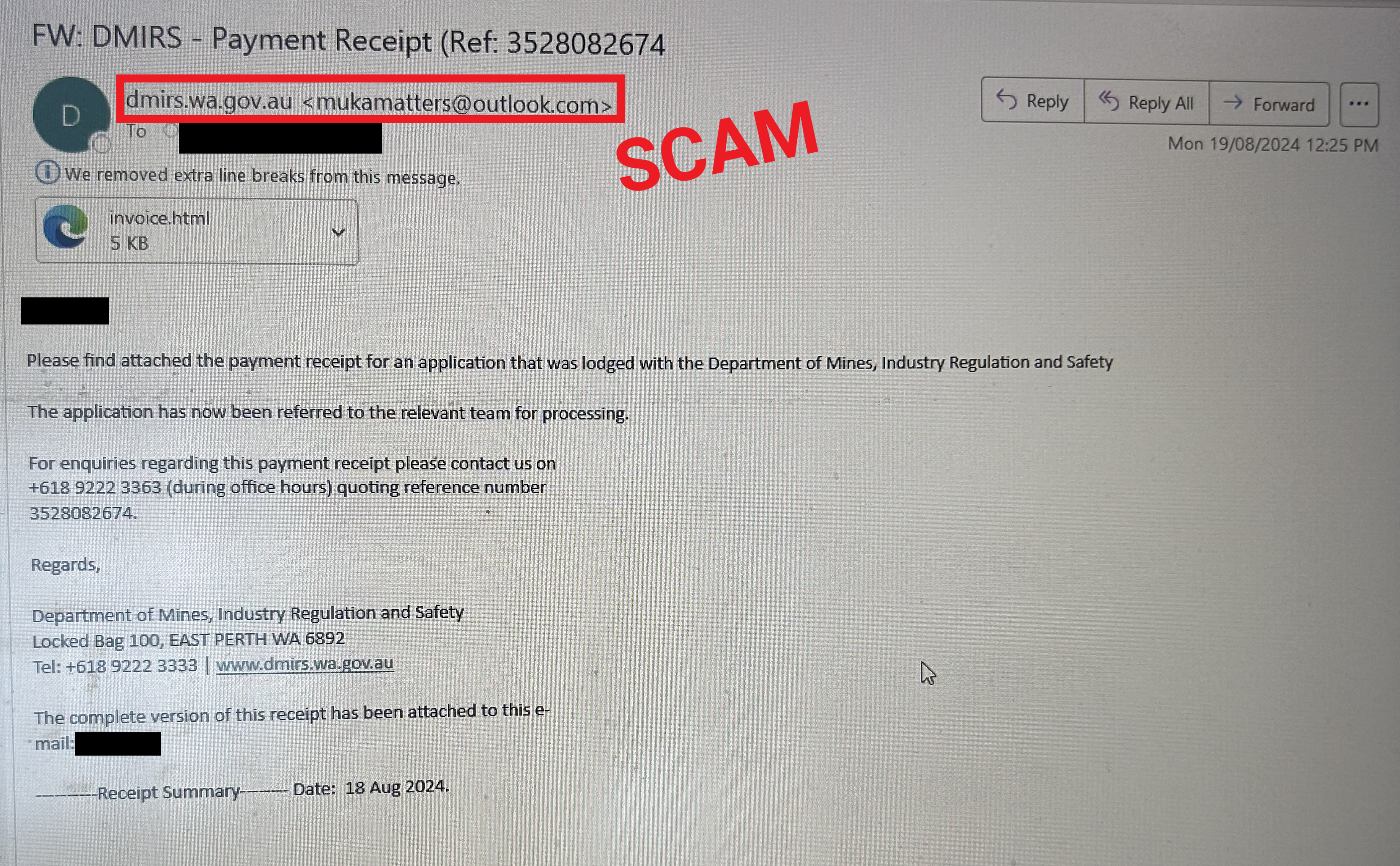
DEMIRS impersonation scam
Read More...Scammers are contacting people by text message (SMS) and email claiming to be DEMIRS or DMIRS.
-
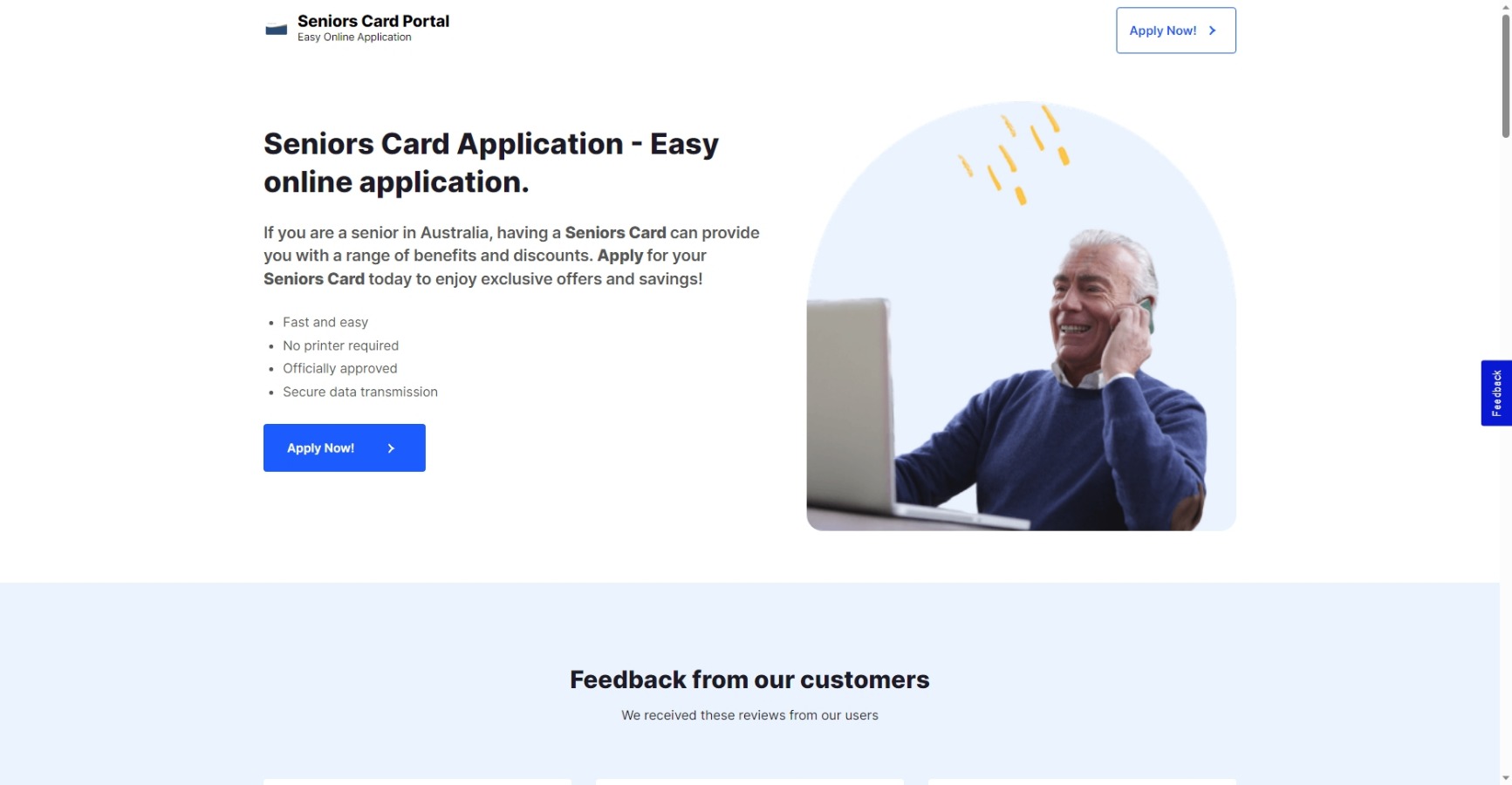
WA Seniors Card scam
Read More...Western Australian seniors are being targeted by scammers through a scam WA Seniors Card website requesting money and multiple forms of personal identification.
-
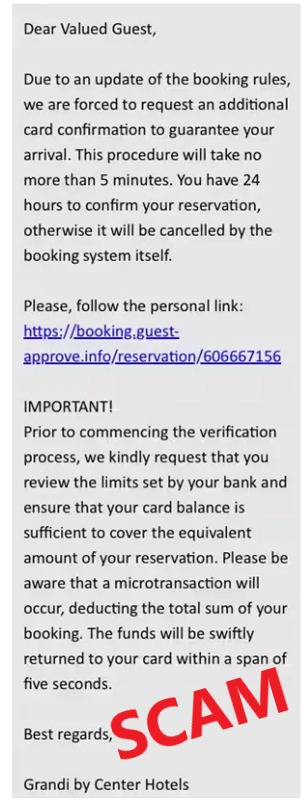
Hotel booking scam
Read More...WA ScamNet is warning WA travellers about a sophisticated new scam related to accommodation bookings that could risk turning their dream holiday into a nightmare.
-
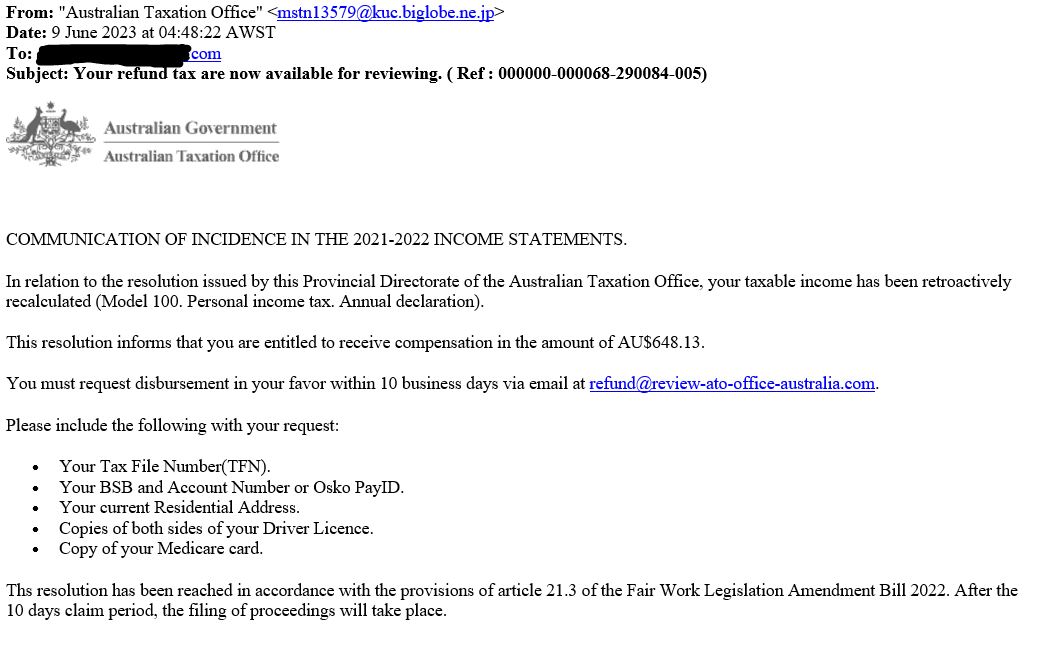
Tax phishing emails
Read More...WA ScamNet has renewed its warnings about fake tax communications after fresh reports of emails claiming to be from the ATO. Do not click on any links. Just delete it.
-
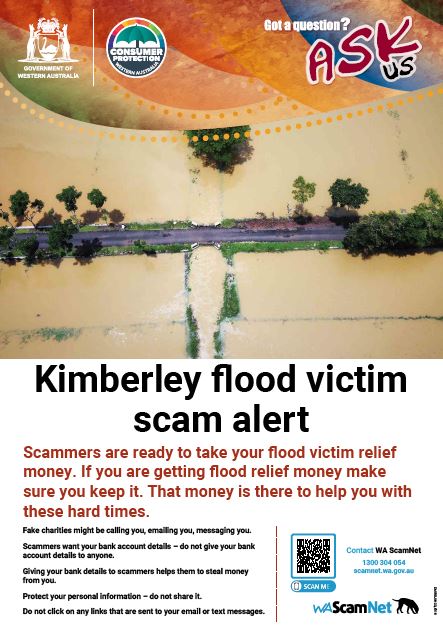
Kimberley flood victims targeted
Read More...More scams target Kimberley flood victims via social media.
-
 23 April 2021
23 April 2021Fake purchase phishing scam (Amazon & PayPal)
Read More...WA ScamNet is receiving increasing reports of scammers impersonating staff from Amazon and its streaming service Amazon Prime.
The calls and messages are a phishing scam to try to lure consumers out of their banking and personal information.
-
 17 March 2021
17 March 2021Payment redirection scams in property transactions
Read More...Property buyers and sellers need to be suspicious of any email appearing to be from their real estate or settlement agent asking for a payment of money or advising of a change in bank account details. This could be the work of scammers.
-
 25 August 2020
25 August 2020Discount bills
Read More...Scammers pretending to be from legitimate businesses are cold-calling people and promising savings of 20-40 per cent on their household bills.
-
 20 January 2021
20 January 2021Payment redirection scams
Read More...Alarm bells should ring if a supplier of services or goods contacts your organisation to provide new bank account details for you to pay them.
-

Who's really calling? Not the ATO or ACIC
Read More...Consumer Protection has received more reports from people who have received telephone calls from scammers pretending to work for government or law enforcement agencies.
-
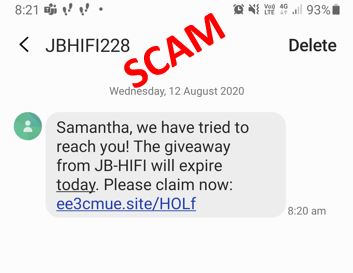 7 January 2021
7 January 2021JB Hi-Fi giveaway scam
Read More...Scammers posing as electronics retailer JB Hi-Fi are sending SMS messages claiming there is a ‘giveaway’ that expires soon – but be warned, it’s nothing more than a phishing exercise to get hold of your credit card details.
-

Live stream scams
Read More...This type of scam appears to have emerged during COVID-19 when live stream events have become more popular due to social distancing restrictions.
-
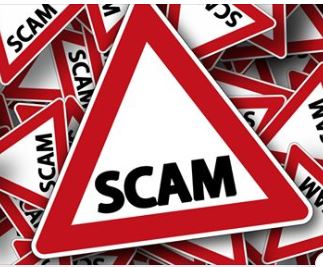 12 May 2020
12 May 2020$70,000 in losses reported from victims of COVID-19-related scams
Read More...WA ScamNet has received reports from seven victims of scams where COVID-19 was used in the plot to steal a total of about $68,000.
-

The latest COVID-19 scams in Australia
Read More...Scammers are taking advantage of the COVID-19 coronavirus pandemic with numerous scams surfacing in Australia across many environments including banking, telcos, superannuation, Services Australia and more.
-

Check the tick before you click
Read More...These days, it pays to be extra vigilant on social media. Like-harvesting, or like-farming as it is also called, is a scam perpetuated throughout Facebook and features bogus pages designed to do nothing more than “harvest” your likes.
-

COVID-19 coronavirus scams
Read More...Scammers are taking advantage of fears surrounding COVID-19 to deceive victims into handing over their money and/or personal information, so it’s important to be extra vigilant.

-

False Invoices
Read More...Businesses are often targeted by scammers hoping that busy firms may sign invoices without checking their authenticity. Sometimes these fake invoices are for a listing in a publication which the business hasn’t ordered.
-

Chemist Warehouse survey
Read More...A fake online questionnaire claiming to be from popular chemists are doing the rounds. People receive a link to the survey, which may even appear to be sent by a friend or family member.
-

Online loan scams
Read More...Consumer Protection has issued an alert after many West Australians desperate to get a loan have been duped by online loan scams. Some of the scammers are stealing the identity of legitimate online money lenders, adding to the confusion of consumers.
-

Fake NDIS callers
Read More...Scammers posing as NDIS providers are calling and requesting personal information and banking details.
-

NBN Scams
Read More...Opportunistic scammers are attempting to trick people into giving personal information to potentially steal their money or identity.
-

Qantas free tickets
Read More...Fake web pages claiming Qantas is giving away two free first class tickets for their 96th anniversary are being shared on social media.
-

Qantas Customer Satisfaction Survey
Read More...Qantas Frequent Flyers should be aware of a bogus email to ‘complete the survey’ and ‘claim a reward’ - it a phishing scam.
-

Car Crash Compensation Phone Scam
Read More...Scammers are offering compensation for a car accident in an attempt to obtain personal information from victims.
-

Online blackmail scam targets students
Read More...Students are being warning about an online blackmail scam, whereby scammers are trying to extort money from students visiting essay chat forums. Scammers gain personal information and create spoof emails from universities in order to trap students into paying up big bucks.
-

myGov fake emails
Read More...WA ScamNet regularly receives reports about scam emails that claim to be from the Australian Tax Office (ATO).
Usually the email’s offering a tax refund or it might be asking you to update your details.
The body of the email will ask you to click a link – never do this as this is how the scammers will get your details.
-

Commerce government officer impersonations
Read More...Scammers are pretending to be Commerce officers in email and phone scams.
-

Real estate scam attempt thwarted
Read More...Consumer Protection and WA Police have issued a joint warning to real estate agents after scammers tried to sell a Perth home without the owner’s knowledge. An overseas organised criminal network began the process of selling the home by emailing the Property Manager, using a fake email address which mirrored the true owner’s name. Thankfully the agent followed WA Government guidelines which were introduced following the fraudulent sale of a Karrinyup home in 2010 and a Ballajura home in 2011.
-

Voucher Prize scams
Read More...Beware of “voucher prize” scam text messages. Do not to respond to text messages which claim you have won a voucher, In fact you may be entering into an expensive mobile premium SMS service.
-

SMS competition & trivia scams
Read More...An SMS competition or SMS trivia scam usually arrives as a text message and may encourage you to enter a competition for a great prize.The scammers make money by charging extremely high rates for the messages you send, and any further messages they send to you. These charges could be as high as $4 for each message sent and/or received.
-

Telemarketing
Read More...Telemarketing or ‘Cold calling’ is an unexpected or unsolicited telephone call offering investments or financial advice. The investments they offer usually guarantee high returns or encourage you to invest in overseas companies.
-

Australian Fair Trading
Read More...What a cheek! Cyber criminals aim to steal your identity by putting out an email confirming your “complaint” about identity theft!
-

Confirmation Orders
Read More...An email arrives confirming your order for a lap top computer or other product or service. The email attachment provides further details of your order. Hang on! You haven’t ordered a laptop. You click on the attachment to find out more information, fearing that somebody has stolen your credit card information to place the order. And that’s exactly what the scammers are relying upon
-

Hang Seng Bank
Read More...Con artists posing as employees and senior executives of the Hang Seng Bank are trying to rope you into becoming a ‘partner’ in a business transaction.
-
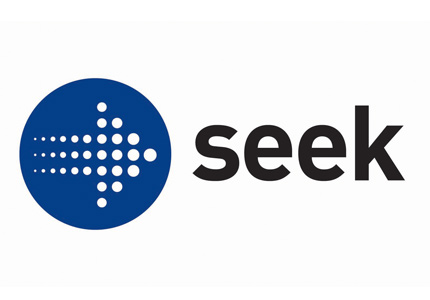
SEEK job scams
Read More...The operators of these sophisticated scams use a well-known legitimate job vacancy website to hook you in to revealing your details.
-

TNT Courier Service
Read More...Scammers are using the names, brands and logos of well-known companies, including courier services, to hook you into advance fee fraud and lottery swindles.




